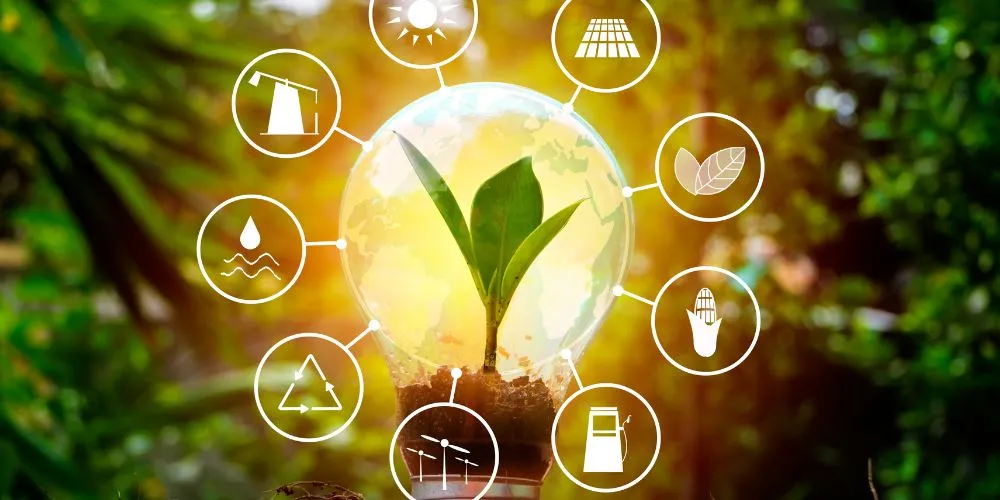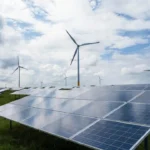Energy conservation takes a leading role in global efforts to address environmental concerns and ensure a sustainable future. This comprehensive exploration delves into the significance of energy conservation, its principles, effective strategies, and its profound impact on mitigating climate change and promoting environmental stewardship. By understanding the critical role of energy conservation, individuals, businesses, and governments can collectively contribute to building a more sustainable and resilient world.
The Imperative of Energy Conservation
Energy conservation is imperative due to the urgent need to reduce energy consumption, minimize environmental impact, and secure a sustainable energy future. This proactive approach recognizes that our current energy use patterns are often inefficient and contribute significantly to carbon emissions, exacerbating climate change.
It systematically manages energy resources to reduce consumption while maintaining desired outcomes. It involves adopting practices, technologies, and policies to optimize energy use, reduce waste, and promote the use of renewable energy sources. It becomes a cornerstone of responsible environmental stewardship by prioritizing efficiency and sustainable practices.
Principles of Energy Conservation
Energy conservation principles focus on maximizing energy efficiency, minimizing waste, and adopting sustainable alternatives. Key principles include utilizing energy-efficient technologies, minimizing unnecessary energy consumption, promoting renewable energy sources, and cultivating a culture of responsible energy use.
Strategies for Effective Energy Conservation
Implementing effective strategies is paramount in realizing the goals of energy conservation. These strategies encompass various aspects of daily life, industrial processes, and governmental policies.
Energy-Efficient Technologies
Embracing energy-efficient technologies is a cornerstone of effective energy conservation. It includes adopting appliances, lighting, and machinery designed to optimize energy use, reduce waste, and enhance efficiency.
Behavioral Changes and Awareness
Promoting behavioral changes and raising awareness play a crucial role in energy conservation. Educating individuals about the environmental impact of energy consumption promotes a culture of responsible energy use, encouraging practices such as turning off lights and appliances when they are not in use.
Sustainable Urban Planning
Sustainable urban planning focuses on designing cities and communities that prioritize energy efficiency and sustainability. It involves developing green spaces, implementing efficient public transportation systems, and constructing energy-efficient buildings to reduce energy demand.
Governmental Policies and Incentives
Governments play a pivotal role in driving energy conservation by formulating effective policies and implementing targeted incentives. Tax credits, subsidies, and regulatory frameworks encouraging businesses and individuals to adopt energy-efficient practices can significantly contribute to widespread conservation efforts.
The Environmental Impact of Energy Conservation
The environmental impact of energy conservation extends across various dimensions, addressing critical issues such as carbon emissions, air and water pollution, and the depletion of natural resources.
Mitigating Climate Change
One of the primary benefits of energy conservation is its role in mitigating climate change. Reducing reliance on fossil fuels and minimizing carbon emissions helps slow the pace of global warming and its associated adverse effects.
Reducing Air and Water Pollution
It also helps reduce air and water pollution associated with conventional energy production. Adopting cleaner energy sources and more efficient technologies decreases the release of pollutants, preserving air and water quality.
Conserving Natural Resources
Conserving energy goes hand in hand with conserving natural resources. By optimizing energy use and transitioning to renewable sources, we alleviate the strain on finite resources, ensuring a more sustainable balance between human activities and the environment.
Energy Conservation in Different Sectors
Energy conservation finds application in various sectors, each presenting unique challenges and opportunities for efficiency improvements.
Residential Sector
In the residential sector, energy conservation involves adopting energy-efficient appliances, improving home insulation, and implementing smart home technologies. Behavioral changes, such as using energy-efficient lighting and optimizing heating and cooling systems, contribute significantly to conservation efforts.
Industrial Sector
The industrial sector is a pivotal contributor to energy consumption, making energy conservation initiatives crucial. Implementing energy-efficient processes, upgrading machinery, and optimizing production schedules help reduce energy demand and minimize environmental impact.
Transportation Sector
Efforts in the transportation sector focus on enhancing fuel efficiency, promoting public transportation, and encouraging the adoption of electric vehicles. These initiatives aim to reduce the carbon footprint associated with commuting and travel.
Commercial Sector
The commercial sector benefits from energy conservation by implementing sustainable building practices, energy-efficient lighting, and smart HVAC systems. Adopting eco-friendly practices in offices, retail spaces, and other commercial establishments not only contributes to cost savings but also promotes environmental preservation.
Challenges in Implementing Energy Conservation
While the benefits of energy conservation are undeniable, challenges persist in its widespread adoption, necessitating a concerted effort to overcome barriers.
Initial Costs and Investments
One of the primary challenges is the initial costs associated with adopting energy-efficient technologies. While these investments often result in long-term savings, upfront expenses can deter individuals and businesses, emphasizing the need for financial incentives.
Lack of Awareness and Education
A lack of awareness and education about the importance of energy conservation hinders the widespread adoption of energy conservation measures. Efforts to educate the public about the environmental and economic benefits of conservation are essential in overcoming this challenge.
Resistance to Change
Resistance to change, whether in behavioral patterns or industrial practices, poses a significant obstacle. Overcoming this resistance requires effective communication, highlighting the benefits of conservation, and showcasing successful case studies.
Future Trends in Energy Conservation
The future of energy conservation is marked by emerging trends that promise to overcome current challenges and further enhance global efforts toward sustainability.
Smart Technologies and Automation
Integrating smart technologies and automation is a burgeoning trend in energy conservation. Smart grids, energy-efficient sensors, and automated systems provide real-time data and control, enabling the optimization of energy consumption in homes, industries, and cities.
Blockchain for Energy Management
The application of blockchain technology in energy management is gaining traction. Blockchain enables transparent and secure energy transactions, fostering decentralized energy systems and incentivizing conservation through tokenized mechanisms.
Artificial Intelligence for Predictive Analytics
Artificial intelligence (AI) is increasingly employed for predictive analytics in energy management. AI algorithms analyze data patterns to forecast energy demand, enabling more proactive and efficient energy conservation strategies.
Decentralized and Renewable Energy Sources
The growing emphasis on decentralized and renewable energy sources is a significant trend. It includes the increased adoption of solar panels, wind turbines, and other distributed energy systems that contribute to localized energy production and reduced reliance on centralized grids.
Conclusion
Energy conservation emerges as a pivotal solution to address the challenges of climate change, environmental degradation, and unsustainable resource consumption. By embracing energy-efficient technologies, fostering awareness, and implementing strategic policies, individuals, businesses, and governments can collectively contribute to building a more sustainable and resilient future.
The imperative of energy conservation extends beyond immediate cost savings; it is an essential investment in the well-being of our planet and future generations. Through concerted efforts and a global commitment to responsible energy use, we can create a world where it is not just a choice but an integral part of our collective responsibility to safeguard the environment.





